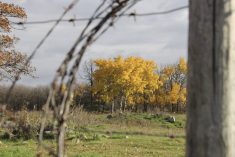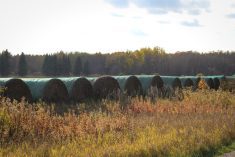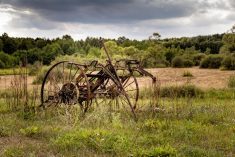Ottawa | Reuters — Smoke shrouded Western Canada on Monday as wildfires flared again in the main oil-producing province of Alberta, while firefighters in Quebec doused some of the worst early-season blazes, allowing thousands of evacuees to return home.
Canada is enduring its most destructive start to wildfire season, with about 4.8 million hectares — an area larger than the Netherlands — already burnt.
Forest fires regularly occur in the summer but the scope of the current conflagration — and its early arrival — are unprecedented. On Monday, some 449 fires were burning across Canada, including 219 out of control, according to the Canadian Interagency Forest Fire Centre.
Read Also

U.S. livestock: Feeder cattle hit contract highs on tight supply
Chicago | Reuters – All Chicago Mercantile Exchange feeder cattle futures and most live cattle futures hit contract highs on…
“If you look at Western Canada, it’s completely covered by the smoke and that continues into Tuesday,” federal meteorologist Gerald Cheng told reporters on Monday. “The risk for smoke is very high because the winds are really transporting the smoke throughout Alberta today and even into Tuesday.”
The fires in Alberta are sending plumes of smoke eastward over Prairie provinces Saskatchewan and Manitoba.
Edson, a town of about 8,000 about 190 km west of Edmonton, and its surrounding area have been under evacuation orders since Friday. TC Energy said two compressor stations and a gas storage facility near wildfires at Edson had to be shut down on Saturday.
Environment Canada’s Air Quality Health Index put Edmonton and oil sands hub Fort McMurray in the “high risk” category.
Quebec has seen its number of active fires diminish to about 110 on Monday from nearly 150 last week that sent a veil of smoke over the U.S. East Coast.
Cheng said some rain was in Quebec’s forecast on Monday, but not enough in the places with the most active fires.
“On top of that, only showers are in the forecast with thunderstorms, lightning — especially later for the week,” Cheng said, noting the risk of lightning igniting new fires.
Nearly 5,000 firefighting personnel are deployed in Alberta, Nova Scotia and Quebec, and Canadian Defence Minister Anita Anand told a briefing on Monday that more army members will be deployed to Edson.
The fires have also forced Canada’s forestry industry to shut down sawmills, driving up lumber prices and setting production back for months just as housing construction has slowed due to higher costs and a tight labour market.
— Ismail Shakil is a Reuters news correspondent in Ottawa.
















